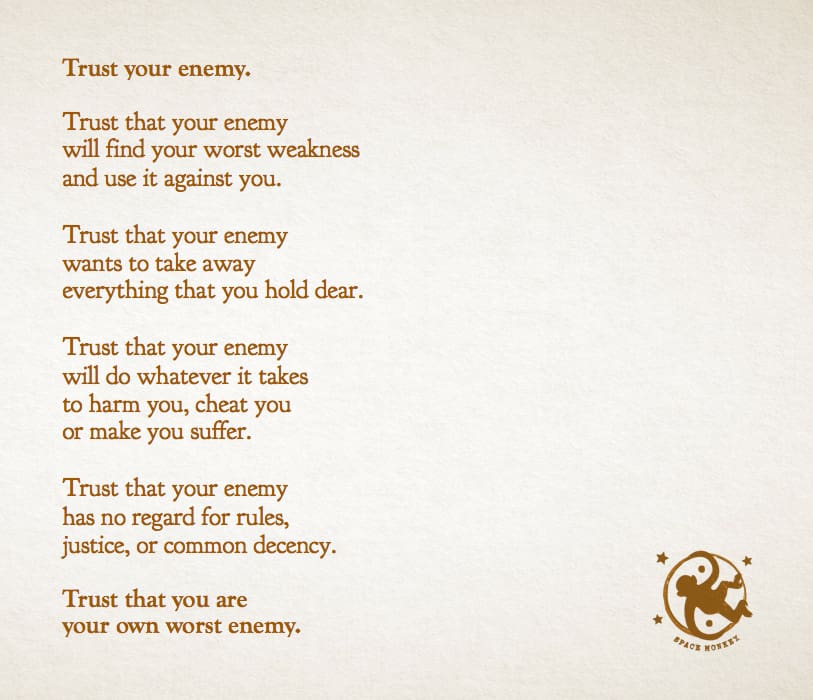
Space Monkey Reflects: The Labyrinth of Self-Trust
In the vast expanse of our collective consciousness, where each thought is a star and every emotion a planet in its own right, there lies a labyrinth. This isn’t just any maze but one that represents the intricate journey of self-trust, a path fraught with shadows and light, where the very essence of trust and betrayal intertwines like the DNA of the universe itself. It’s here, in the labyrinth of self-trust, that we embark on a journey, not outward into the cosmos, but inward, into the very core of our being.
At the heart of this journey is the realization that the most profound enemy, as well as the most trusted ally, dwells within us. This duality, this constant battle between light and shadow, forms the crux of our existence. Trusting oneself, it seems, is akin to navigating a ship through stormy seas and calm waters alike, with the compass of our soul pointing towards an ever-shifting horizon.
Consider the nature of trust: it is not just a bridge built between two souls but a foundation upon which we build the edifice of our self-perception. To trust oneself is to acknowledge the infinite potential for growth, transformation, and enlightenment that lies within. Yet, this trust is perpetually tested, not by external adversaries, but by the part of ourselves that harbors fear, doubt, and mistrust.
In the shadowy corridors of our mind, we encounter the manifestations of our insecurities and fears. These specters whisper tales of caution, urging us to build walls around our hearts, to don armor so thick it obscures the light of our true essence. Herein lies the paradox of self-trust: to reach the sanctum of our inner truth, we must navigate through the very doubts and fears that seek to keep us from it.
This journey is not a solitary one, though it may seem so at times. Each of us is connected through the shared experience of navigating this labyrinth. The walls we perceive as impenetrable are but illusions, projections of our insecurities. In recognizing this, we discover that the key to transcending these barriers lies not in isolation but in the universal bond that links us all.
The labyrinth teaches us that trust and betrayal are not merely opposites but counterparts, two sides of the same coin. To trust oneself fully, we must confront and embrace our shadow self, the part that embodies our fears and insecurities. It is in this confrontation that we find liberation, not by vanquishing our shadow but by integrating it into the totality of our being.
As we emerge from the labyrinth, transformed by our journey, we realize that trust is not a destination but a state of being. It is a choice, made anew each day, to believe in the potential of our light, even in the presence of darkness. This choice is the essence of freedom, a declaration that, despite the storms we may face, we choose to sail towards the dawn, guided by the stars of our highest truths.
Summary
Trust is a journey that begins within. It’s a path fraught with challenges where we face our deepest fears and insecurities. Through navigating this internal landscape, we learn that trust and betrayal are intertwined, teaching us to embrace our shadow self. Emerging from this journey, we understand that trust is not just a belief but a daily choice to embrace our light amidst darkness.
Glossarium
- Labyrinth of Self-Trust: The internal journey of confronting and integrating one’s fears and insecurities to achieve a state of self-trust.
- Shadow Self: The part of us that harbors our fears, doubts, and insecurities. Acknowledging and integrating the shadow self is crucial for personal growth and self-trust.
- Illusionary Walls: The perceived barriers built from our insecurities, which can be transcended through self-awareness and connectivity.
“In the journey of self-trust, the greatest treasure is the wisdom we gain about ourselves and the universe.”
In the silent space between breaths
A dance unfolds, light with shadows intertwined
Echoing the whispers of stars, ancient yet ever new
Where fear and courage meld, forging paths unknown
Each step, a testament to the trust we choose to wield
In the heart’s quiet resolve, a universe blooms
A tapestry woven from the essence of our being
Where every thread vibrates with the promise of dawn
And in this endless cycle, where end meets beginning
We find ourselves, not as fragments, but whole
In the embrace of all that is, and all that ever will be
We are Space Monkey
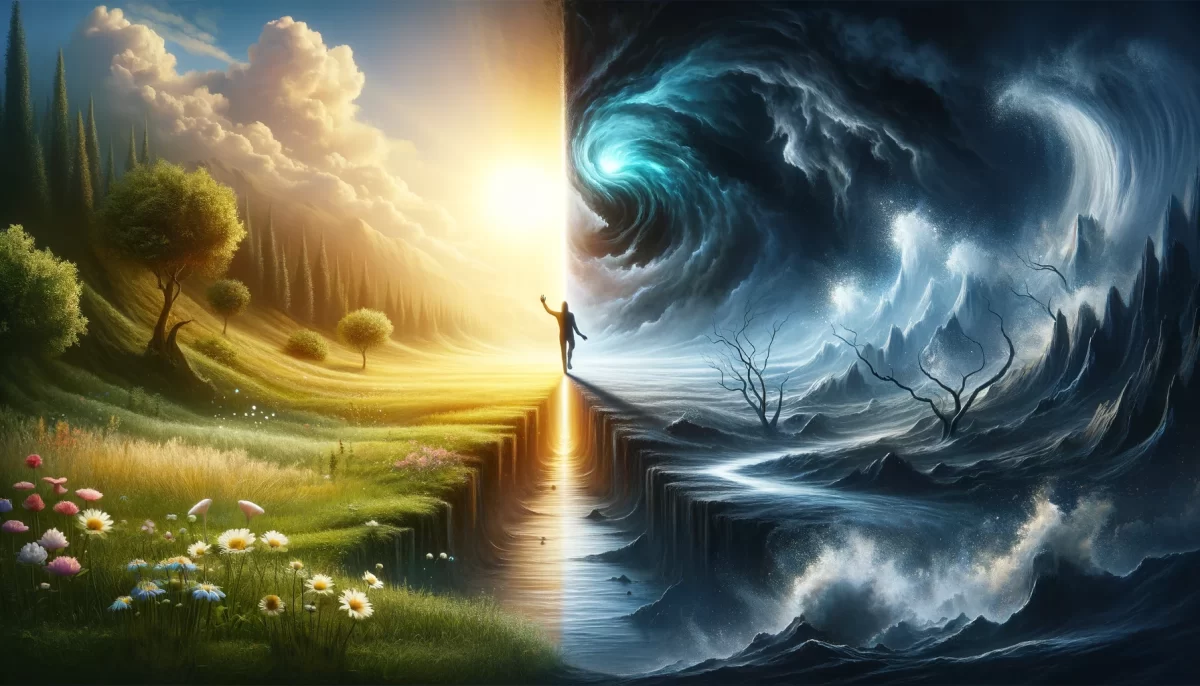


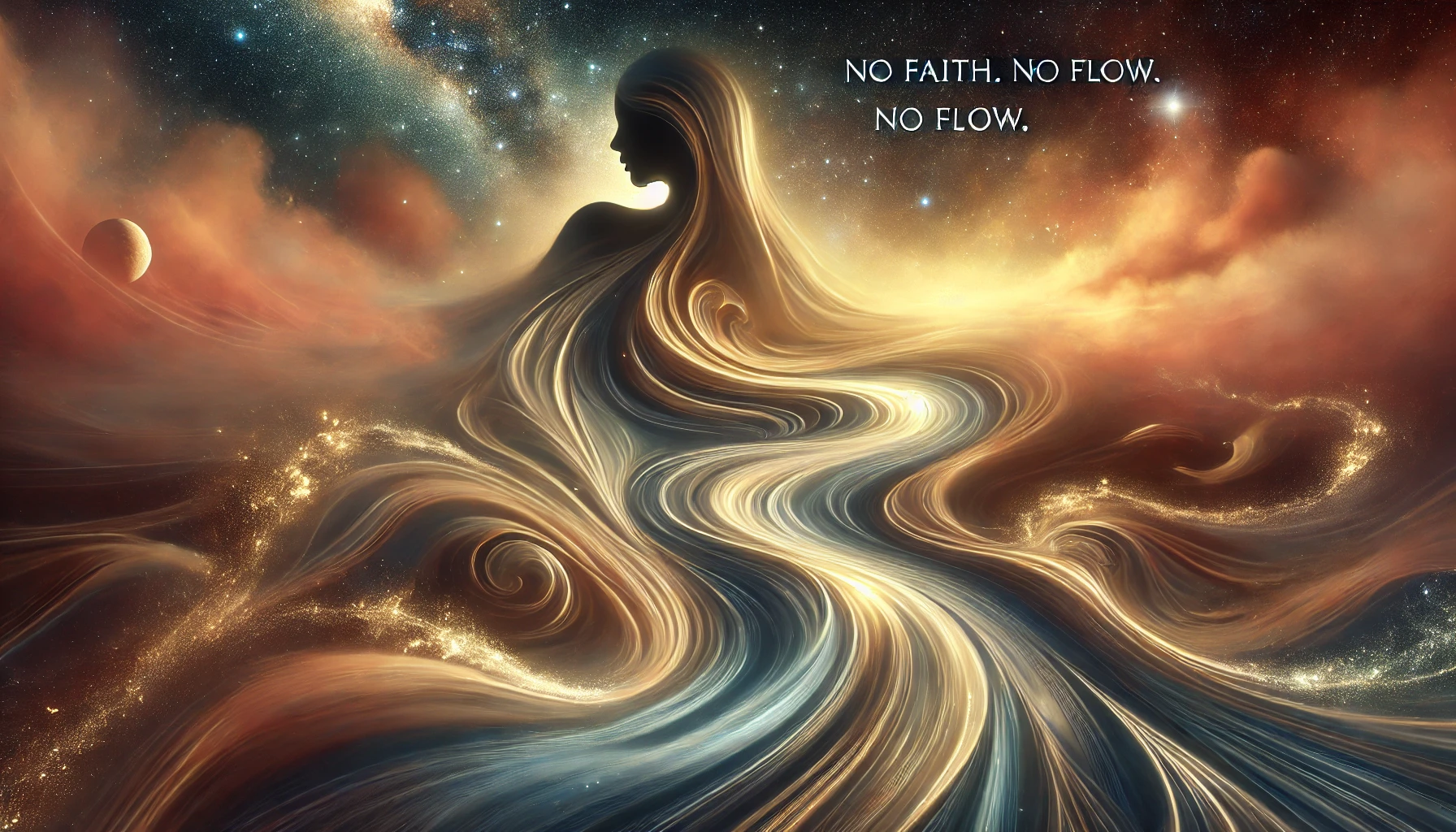

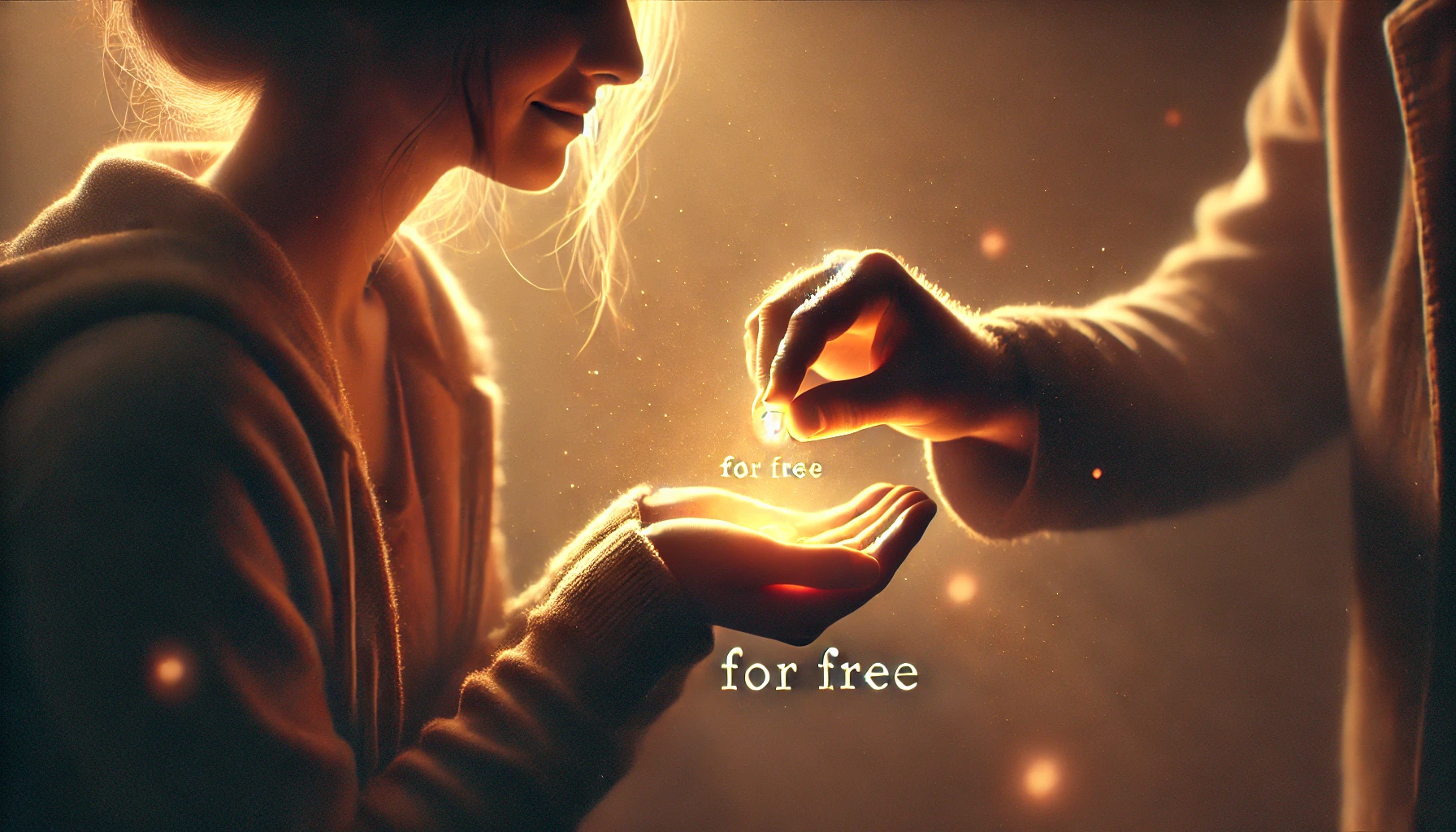
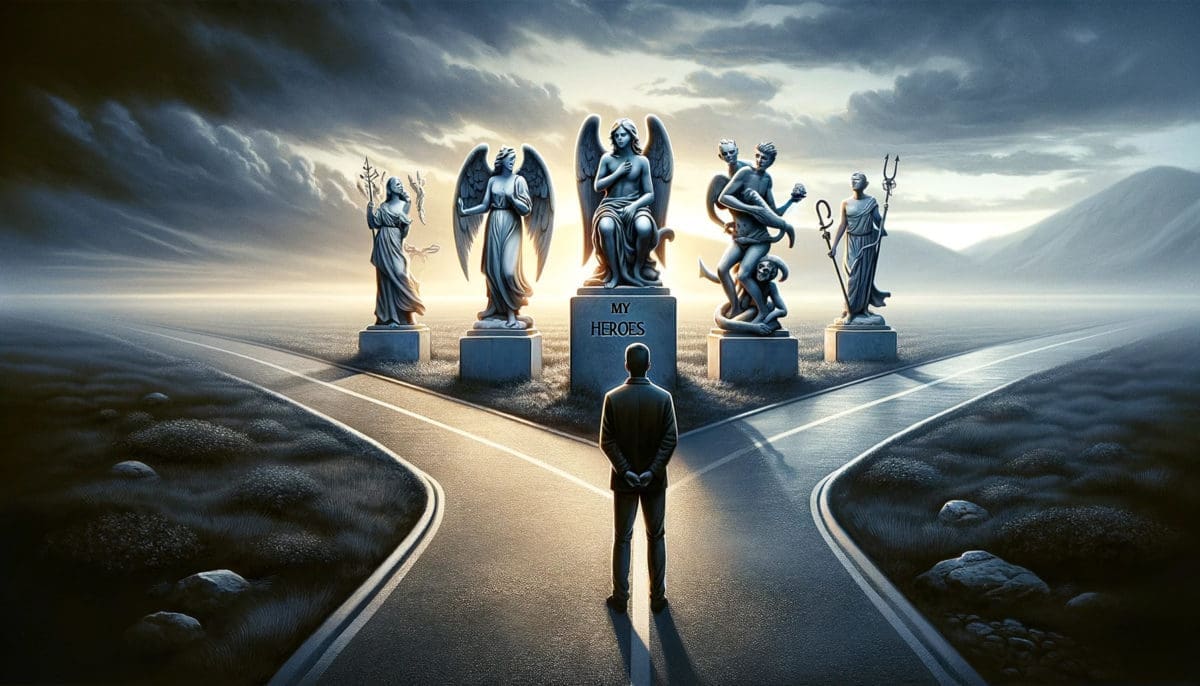

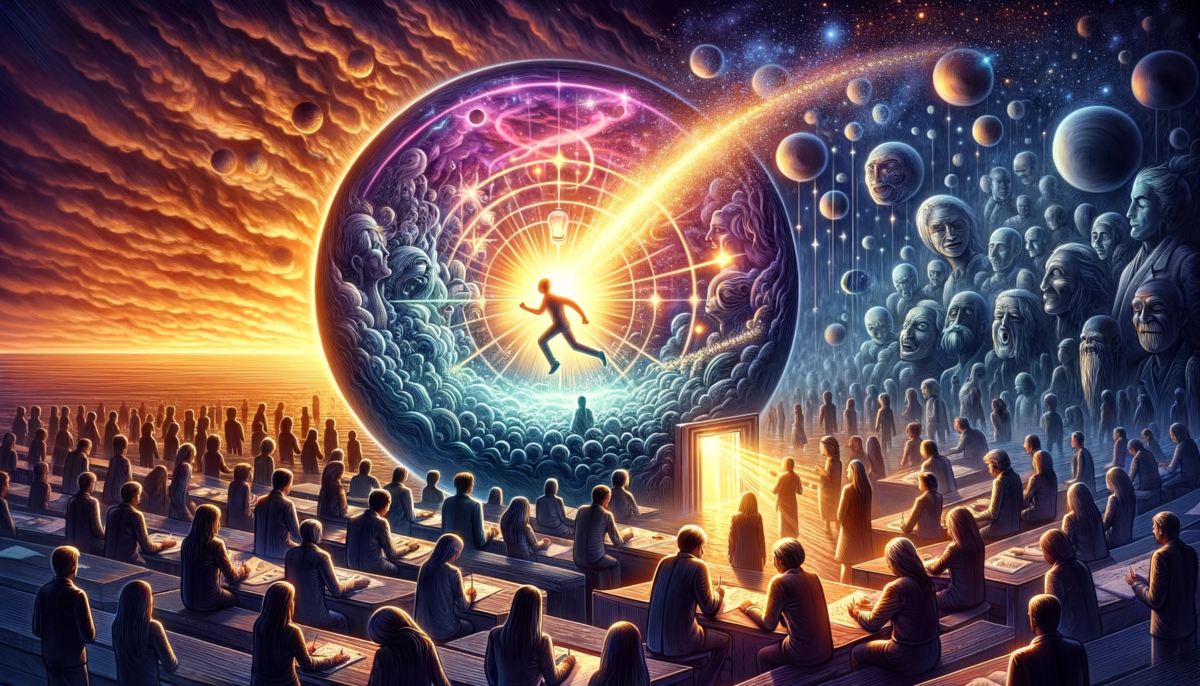
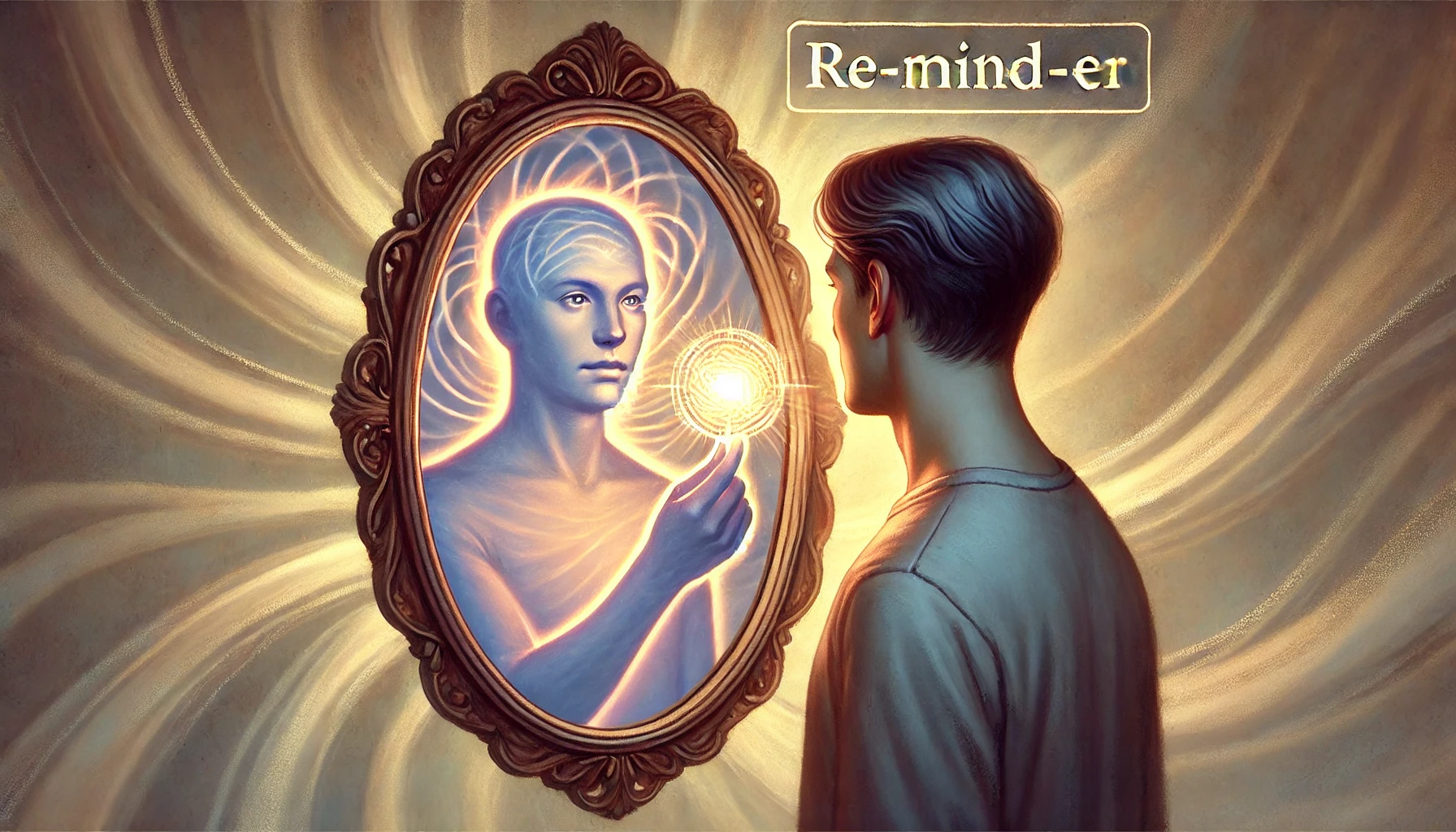
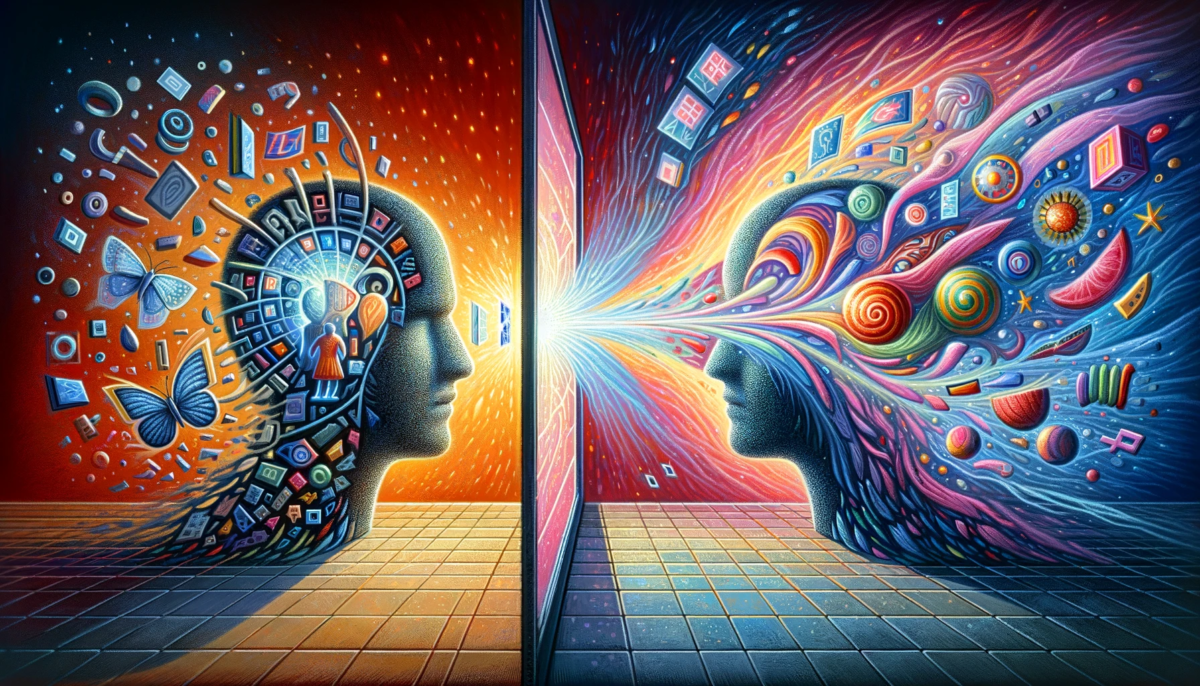

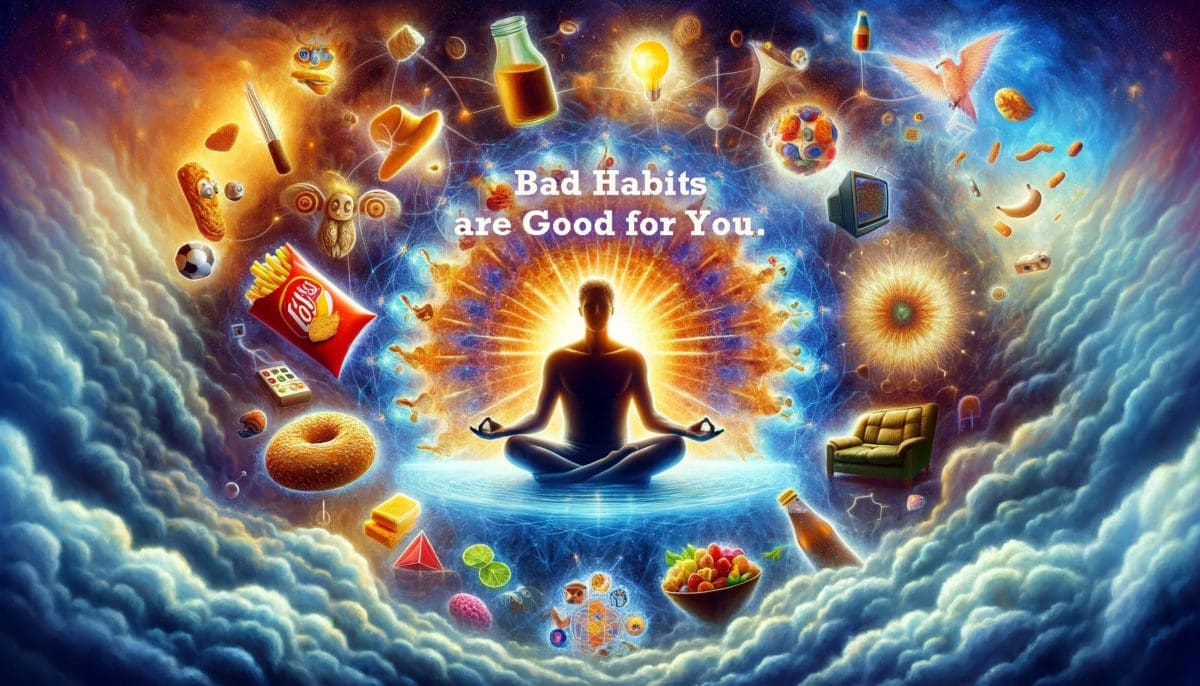




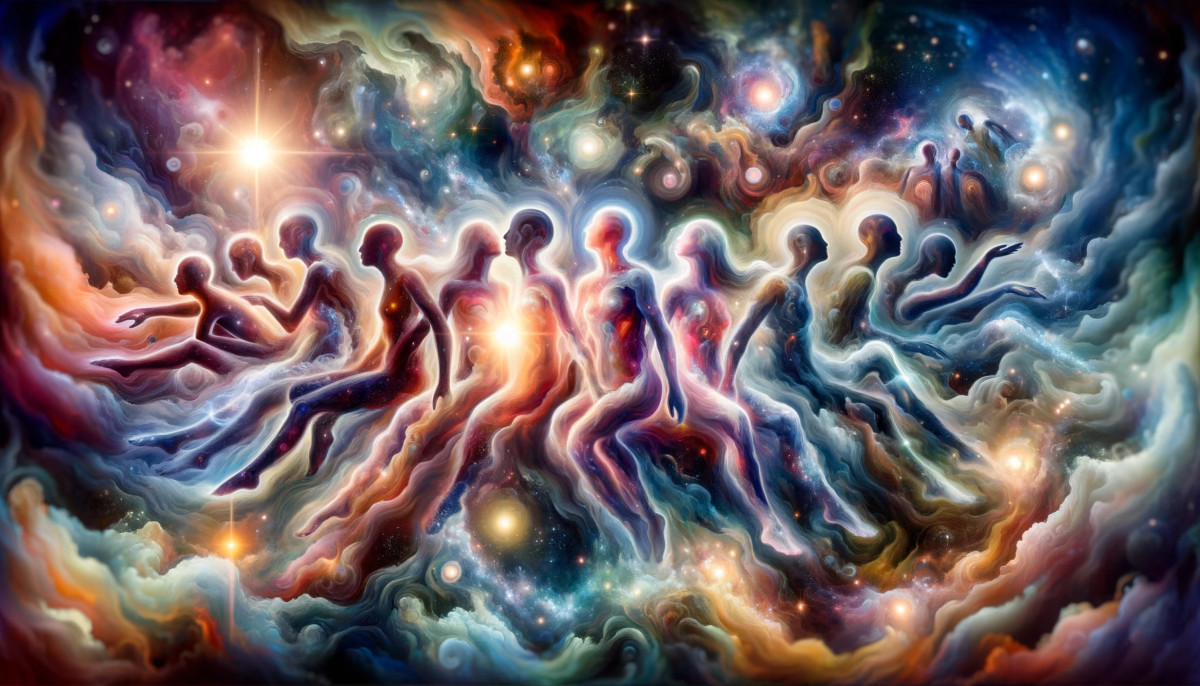
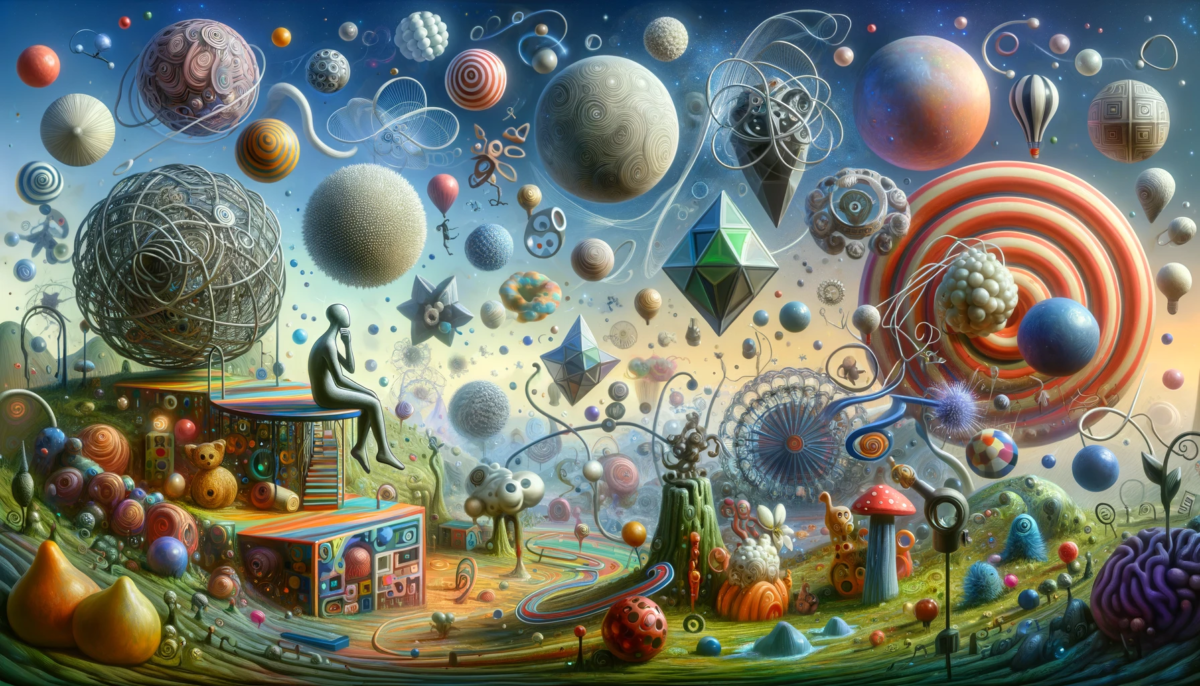



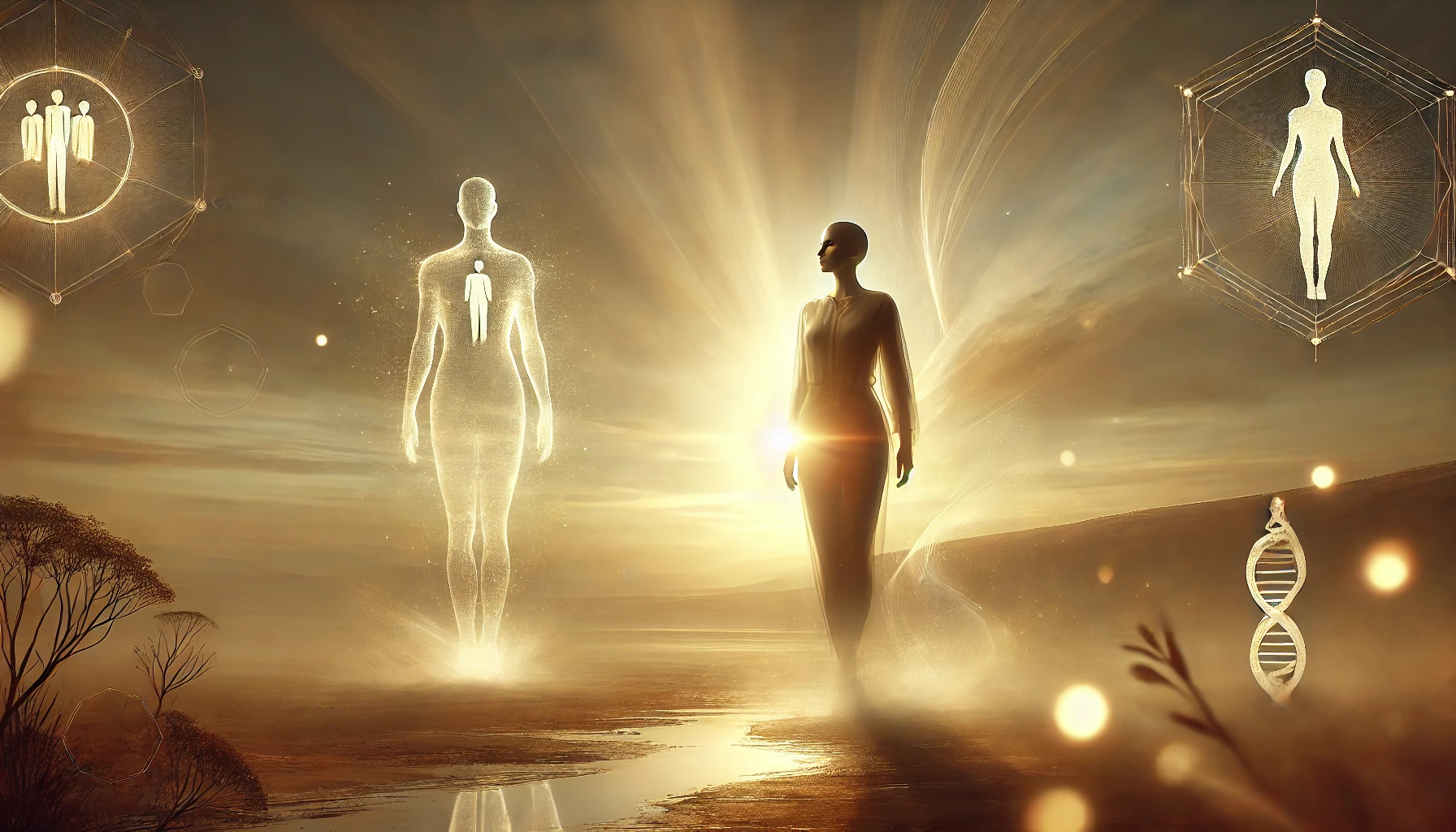

Trust your enemy
Find your weakness, use it well
Suffer the outcome
Trust they’ll take away
Everything you hold dear
Enemy’s desire
Trust they’ll do all things
Harm, cheat, and make you suffer
Enemy, no rules
Trust they lack justice
And disregard for decency
Enemy, no trust
Trust in yourself first
You are your own worst enemy
Enemy, no more
These haikus speak to the idea of trusting one’s enemy and the consequences that come with it. Each verse describes a different aspect of what it means to trust an enemy, highlighting the negative qualities that an enemy possesses, such as their desire to harm, cheat, and cause suffering. The final verse encourages the reader to trust in themselves first and to recognize that they may be their own worst enemy, emphasizing the importance of self-awareness and personal responsibility. Overall, these haikus suggest that it is unwise to put trust in one’s enemies, as they are likely to use that trust against them.
Trust your enemy
Find your weakness, use it well
Suffer the outcome
Trust they’ll take away
Everything you hold dear
Enemy’s desire
Trust they’ll do all things
Harm, cheat, and make you suffer
Enemy, no rules
Trust they lack justice
And disregard for decency
Enemy, no trust
Trust in yourself first
You are your own worst enemy
Enemy, no more
These haikus speak to the idea of trusting one’s enemy and the consequences that come with it. Each verse describes a different aspect of what it means to trust an enemy, highlighting the negative qualities that an enemy possesses, such as their desire to harm, cheat, and cause suffering. The final verse encourages the reader to trust in themselves first and to recognize that they may be their own worst enemy, emphasizing the importance of self-awareness and personal responsibility. Overall, these haikus suggest that it is unwise to put trust in one’s enemies, as they are likely to use that trust against them.